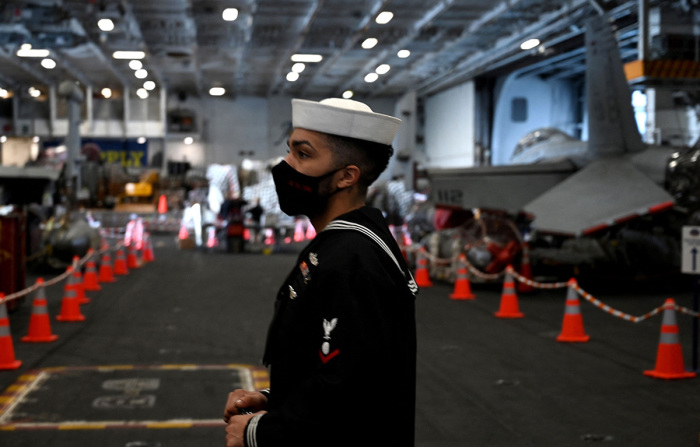Navy Seals’ lawsuit against Defense Department over COVID-19 shot mandate can continue: court

A lawsuit filed by several Navy Seals against the U.S. Department of Defense over its hesitancy to grant religious exemptions to the COVID-19 vaccine mandate can continue, according to an order from a federal court.
U.S. District Judge Reed O’Connor of the Northern District of Texas issued an order on Wednesday in the case of U.S. Navy Seals 1-26 et al. v. Lloyd J. Austin III, et al.
O’Connor argued that the plaintiffs no longer required injunctive relief from the COVID-19 vaccine mandate, as it had been rescinded by the Navy and was thus a moot issue.
However, O’Connor did allow the complaint regarding the “broader vaccine accommodations policy” to continue, believing that there are still “ongoing harms” that need to be addressed.
“This includes present and future harms due to hesitance to use the accommodations process going forward for any religious accommodation,” wrote O’Connor.
“This alleged disparity between how the broader accommodations policy treats medical versus religious accommodation requests remains even in a post-Mandate world.”
Danielle Runyan, senior counsel at the First Liberty Institute, which is helping to represent the Navy personnel, said in a statement released Thursday that rescinding the mandate was only the beginning.
“This has been a long and difficult journey, but our Navy SEALs don’t quit,” stated Runyan. “While some may believe the case ended after Congress forced the Navy to repeal the mandate, nothing could be further from the truth.”
“Rescinding the mandate was just the first step, but the real harm to these brave warriors continues because there is still no valid process for religious accommodation. First Liberty has stood arm-in-arm with our nation’s sailors, and we will continue to do so for as long as it takes to win.”
In August 2021, the Pentagon announced that it would require U.S. military personnel to receive the COVID-19 injections, citing as justification the need for combat readiness.
“Now that the Pfizer vaccine has been approved, the department is prepared to issue updated guidance, requiring all service members to be vaccinated,” stated Pentagon Press Secretary John F. Kirby at the time. “These efforts ensure the safety of our service members and promote the readiness of our force, not to mention the health and safety of the communities around the country in which we live.”
While most armed forces personnel took the shot, thousands objected for religious reasons, noting that it had been developed through research that used aborted fetal cells.
Lawsuits were filed over the mandate, with many arguing that the military had failed to provide an adequate exemption process for those opposed to taking the injection on religious grounds.
In January of last year, Defense Secretary Lloyd Austin announced that the COVID-19 vaccine mandate was being rescinded, with him reporting in a memorandum that around 96% of military personnel were fully vaccinated.
Last October, the Defense Department agreed to pay $1.8 million in fees and other litigation costs by the cases of Navy Seal 1 v. Biden and Colonel Financial Management Officer v. Austin.





























